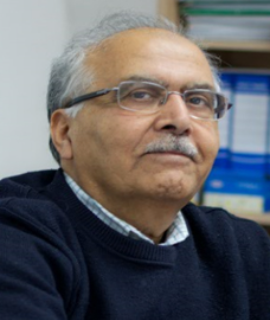Abstract:
Several hyperaccumulator plant species especially the species in Brassicaceae have been extensively investigated for their metal accumulation and detoxification. A number of regulatory mechanisms, including heavy metal absorption, transportation, chelation and detoxification have been developed by metal hyper accumulator plants for their survival in metal polluted environment. HMAs are particularly interesting and according to many recent studies they have been shown a key player in the metal hyperaccumulation. In this regard we have analyzed the gene expression data of model crop plants in Brassicaceae family by searching several databases available online. The criterion observed in this research is that the sequences of different metal induced genes have functional and evolutionary similarities among species. Our hypothesis is that the functionally related sequences of the genes from different species or organisms will be having conserved pattern or motif which will be possibly related to hyperaccumulation of heavy metals. Our qR-T PCR analysis showed that PAA1 and HMA4 play an important role in Zn and Cu accumulation in B. nigra and B. juncea. Interacome and 3D structural analysis showed the interaction of HMA4 with other metal transporters. This interaction is important to understand the role of these ATPases and their interacting molecules in detoxification of the toxic metals from the cells of accumulator plants.
Here, I will overview these findings and highlight their contribution to the field of plant metal homeostasis, and will discuss the emerging avenues of -omics technologies and their impact in understanding the mechanisms of metal accumulation and tolerance.
Biography:
Dr. Abdul Razaque Memon (BSc (Hons), MSc, PhD, DSc) is currently working as a Professor and Head of the Department of Molecular Biology and Genetics at Usak University, Usak, Turkey. He got his BSc (Hons) and MSc. in Agricultural Chemistry from the University of Sindh, Pakistan. He obtained one PhD. from Ege University, Izmir, Turkey in Agriculture and second one from Nagoya University, Nagoya, Japan in Biochemistry. He did 3 years postdoctoral fellowship in the Department of Botany, University of British Columbia, B.C., Canada and 1 year research fellowship in the Lund University, Sweden. He later joined the Department of Biology, Middle East Technical University, Ankara, as an Assistant Professor and then promoted to an Associate Professor in the same department. He moved to USA and worked as a visiting professor for one year at the University of North Carolina, Raleigh and then worked as a senior research scientist in Molecular Biology at the University of Texas, Austin (4 years), Texas A and M University, College Station (2 years) and Louisiana Cancer Research Center, Louisiana State University, Shreveport (1 year). He later joined Turkish Science Research Council (TUBITAK) in 1997 as a Principal Scientific Officer and Head of the Plant Molecular Biology and Genetics Laboratory. After 12 year of research at TUBITAK, he moved to Bosnia and Herzegovina and joined as a full professor and coordinator of the Department of Genetics and Bioengineering at the International University of Sarajevo, Sarajevo. After 6 years of teaching and research he moved back to Turkey and joined Usak University. He also worked as a visiting professor at the Biochemistry Center, Heidelberg University, Germany, in the Department of Plant Sciences, Oxford University, UK and CNRS, Institut de Biologie Moleculaire des Plantes (IBMP), Strassbourg, France and have still active research collaboration with Bielefeld University and Munich University, Germany. He authored 3 books and published around 200 papers in peer reviewed journals. His research work is mostly concentrated in two different areas of molecular biology and genetics. One is in the field of molecular cell biology and protein trafficking in plant cells and second one is on the heavy metal induced gene expression in plants. He supervised 20 PhD and MSc students in the area of stress induced gene expression and vesicular trafficking in plants. Currently 3 postgraduate students working on –omics technology under his supervision.



